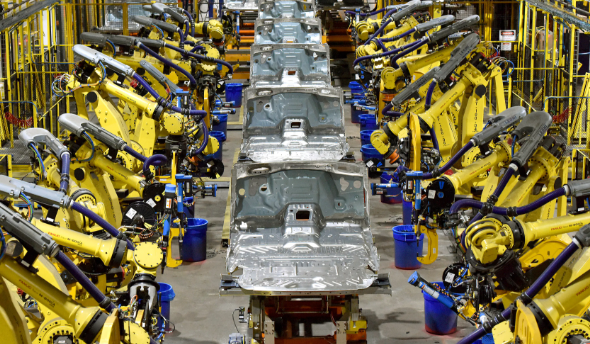At Ford, Rekha Wunnava, Director of Global Manufacturing IT, oversees a team of over 11,000 technologists working in more than 80 facilities worldwide. Her biggest focus: In a climate of hyper-accelerating technological change, how does Ford sustain vertical and horizontal organizational integration across workplaces worldwide?
The answer came in the form of a crucial observation.
“We realized that a robust operational strategy cannot make up for a disengaged or disharmonious workplace culture,” says Wunnava.
Dismantle Stagnancy
In dismantling stagnancy in workplace culture, we partnered with Ford IT to examine the underlying cultural beliefs keeping their outmoded operational systems in place.
“In the past, we had a reliable sequence of gathering requirements, performing analysis, and then designing solutions in response—a process that could take between six months and two years,” says Wunnava. This fixed system restricted flexibility and adaptability, two cultural values that Ford IT identified as keys to future sustainability.

Flexibility and adaptability could only be achieved with shifts in culture. Ford IT technologists reoriented with new priorities: trust and transparency among teams, acknowledgment and accountability, and a respect of knowledge over hierarchy.
By focusing on culture, Ford IT also reassessed and radically shifted its identity within the larger company structure.
“IT has historically occupied the position of a service provider,” says Wunnava. “However, we recognized that reframing our identity in relation to our business counterparts as a partner, rather than a service provider, could serve as a crucial element in remaining agile and meeting the needs of our customers.”
During an intensive process, Ford IT developed five core beliefs to steer their new workplace culture:
- Solve the problem: Ford IT dissolves silos by encouraging creative problem solving across role and team boundaries, fostering collaboration in order to achieve winning outcomes.
- Express yourself: We urge all employees to balance active listening and honest expression, creating a team dynamic that values every member’s voice equally.
- Build trust: Ford IT sees trust as a critical foundation for strong solutions-driven relationships in the workplace. Our employees maintain faith in each other.
- Shape our future: In our workplaces, we leave room for both anticipated and unanticipated change. We empower all employees to shape the organization’s future together.
- Respect knowledge over hierarchy: Ford IT incentivizes egalitarianism by elevating expertise and insight—regardless of which employee offers it—over official titles or rankings.
“We have been able to make this a truly global movement. Ford’s culture transformation has positioned us to deliver faster, better solutions in every marketplace and maximize our achievement in the automotive world,” Wunnava said.
Global Cohesion
Consciousness of culture has become key–affecting change within the company at large, as well. Ford has delegated “Cultural Champions.” Champions embody Ford’s cultural beliefs and promote greater accountability and engagement. Ford also recruits “Cultural Ambassadors,” volunteer senior leaders who are well-versed in and passionate about the process.
“From an IT perspective,” notes Rekha Wunnava, “we do not treat our offices outside of the U.S. as regional or otherwise auxiliary. Each one is integrated into the global product or service line, and, as such, plays an important role in creating a flourishing culture.”




